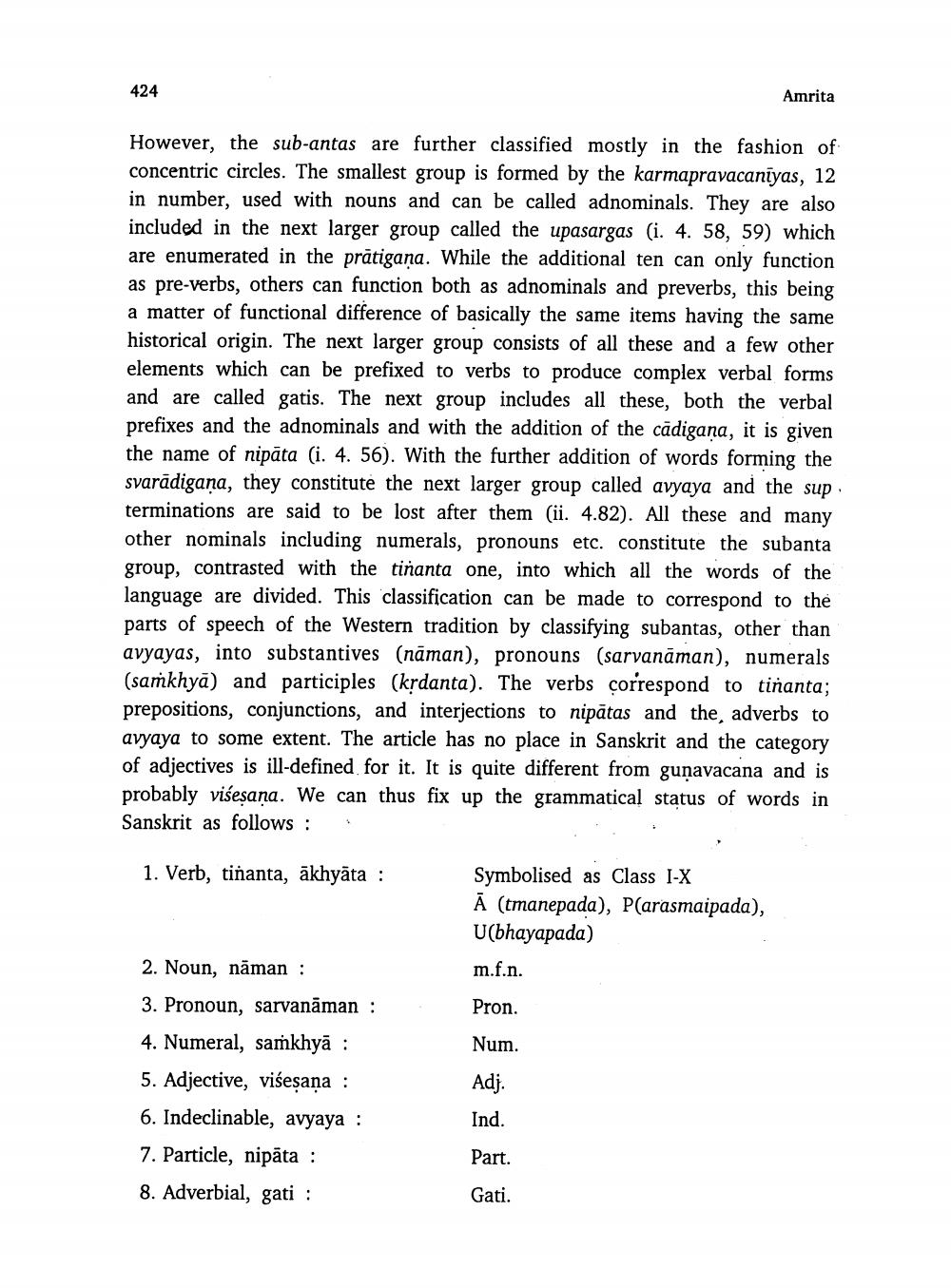________________
424
Amrita
However, the sub-antas are further classified mostly in the fashion of concentric circles. The smallest group is formed by the karmapravacanīyas, 12 in number, used with nouns and can be called adnominals. They are also included in the next larger group called the upasargas (i. 4. 58, 59) which are enumerated in the prātigana. While the additional ten can only function as pre-verbs, others can function both as adnominals and preverbs, this being a matter of functional difference of basically the same items having the same historical origin. The next larger group consists of all these and a few other elements which can be prefixed to verbs to produce complex verbal forms and are called gatis. The next group includes all these, both the verbal prefixes and the adnominals and with the addition of the cādigana, it is given the name of nipāta (i. 4. 56). With the further addition of words forming the svarādigana, they constitute the next larger group called avyaya and the sup terminations are said to be lost after them (ii. 4.82). All these and many other nominals including numerals, pronouns etc. constitute the subanta group, contrasted with the tiñanta one, into which all the words of the language are divided. This classification can be made to correspond to the parts of speech of the Western tradition by classifying subantas, other than avyayas, into substantives (nāman), pronouns (sarvanāman), numerals (samkhyā) and participles (krdanta). The verbs correspond to tiñanta; prepositions, conjunctions, and interjections to nipātas and the, adverbs to avyaya to some extent. The article has no place in Sanskrit and the category of adjectives is ill-defined for it. It is quite different from gunavacana and is probably visesana. We can thus fix up the grammatical status of words in Sanskrit as follows:
1. Verb, tiñanta, ākhyāta :
Symbolised as Class I-X Ā (tmanepada), Parasmaipada), U(bhayapada)
m.f.n.
Pron.
Num.
2. Noun, nāman : 3. Pronoun, sarvanāman : 4. Numeral, samkhyā : 5. Adjective, višeșana : 6. Indeclinable, avyaya : 7. Particle, nipāta : 8. Adverbial, gati :
Adj.
Ind.
Part.
Gati.




